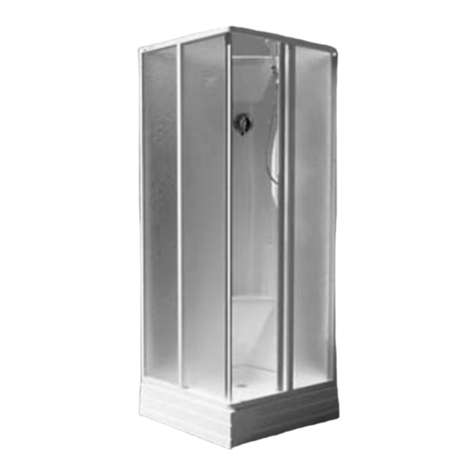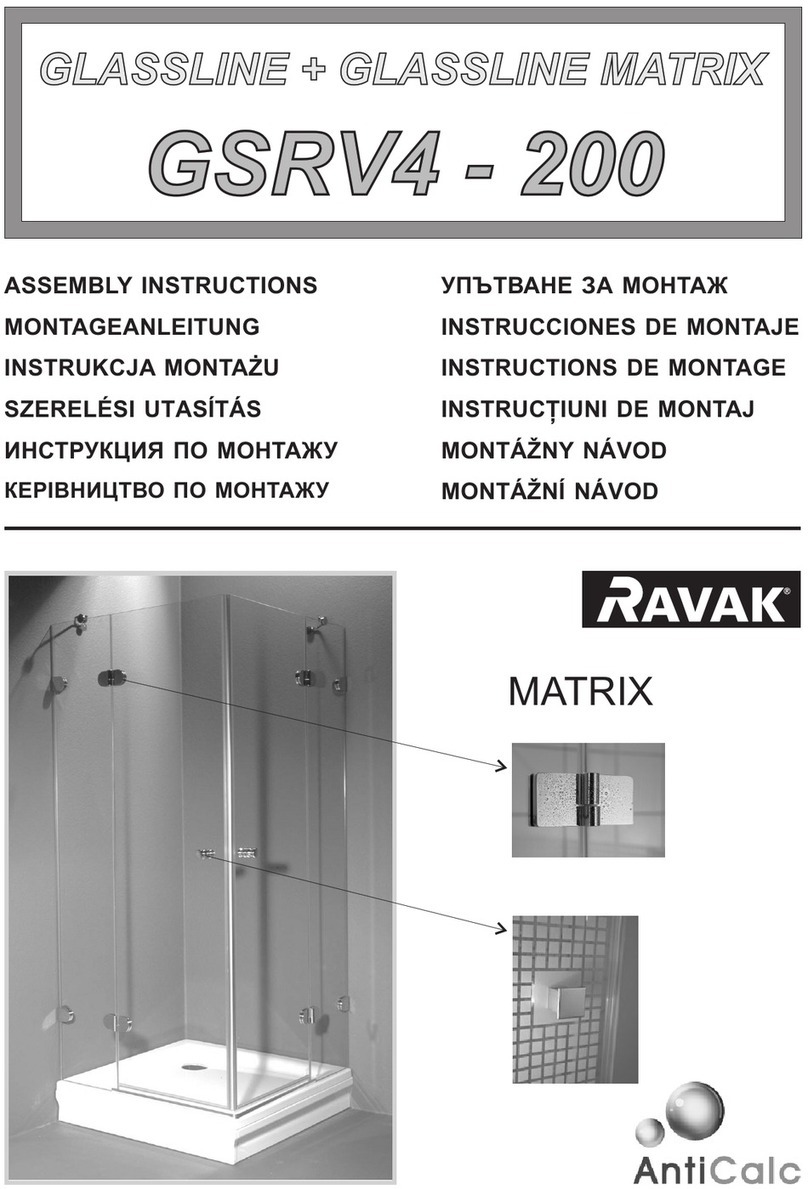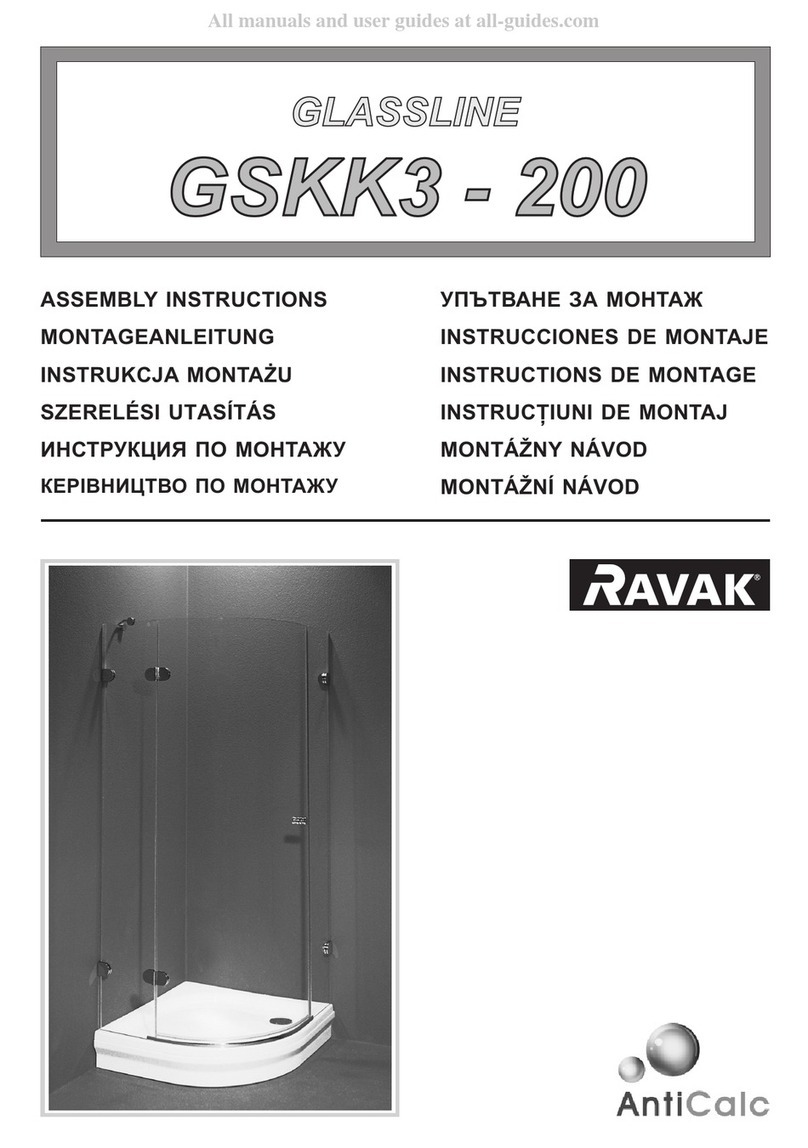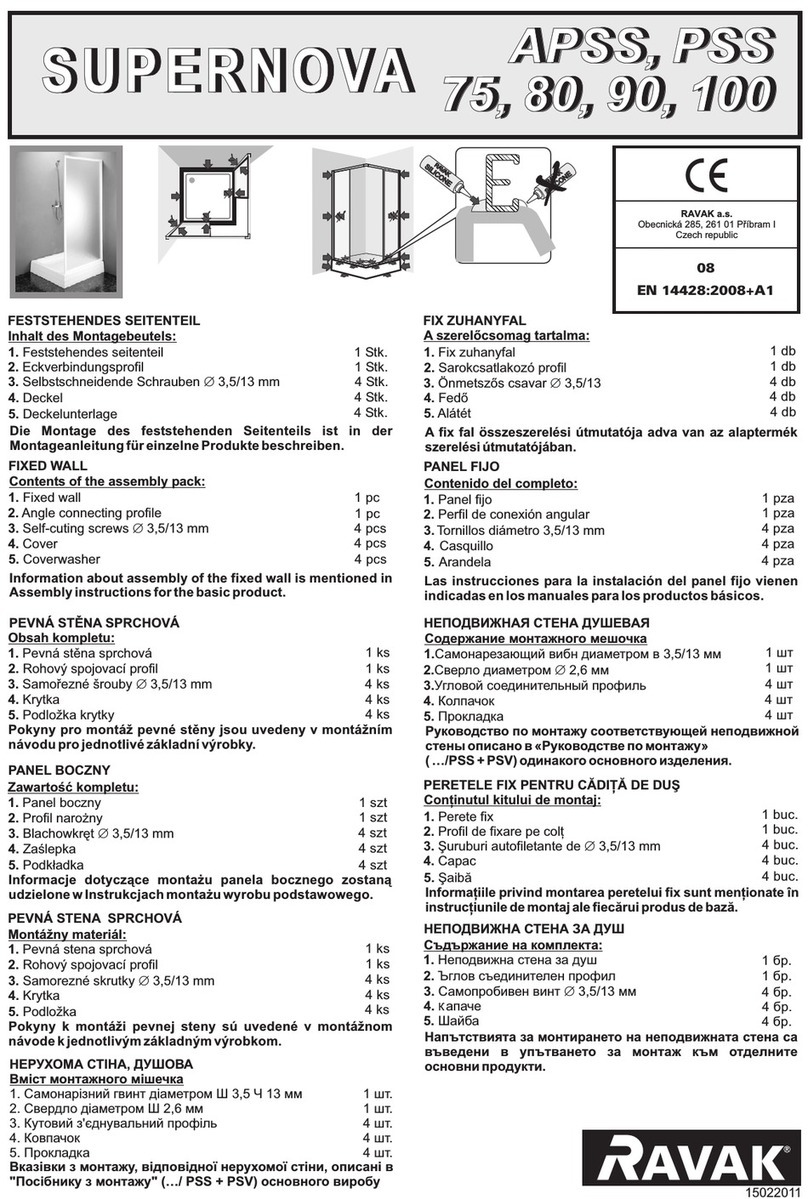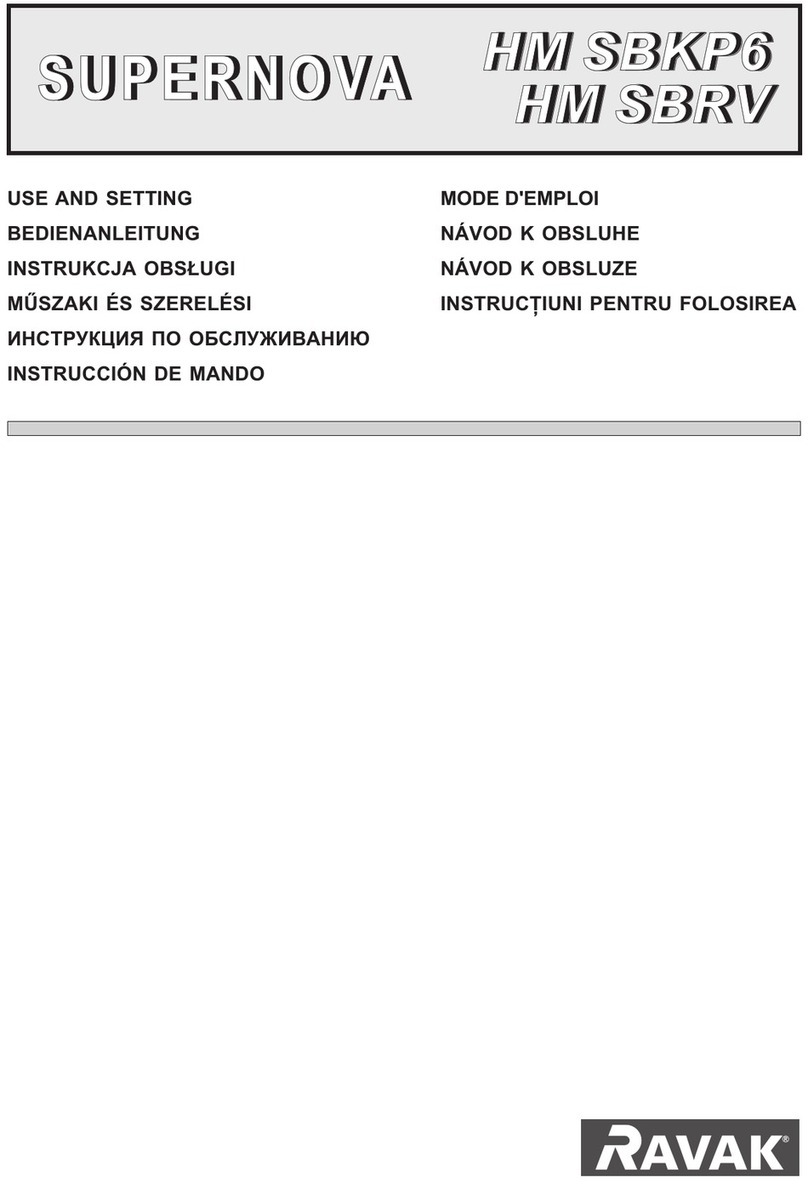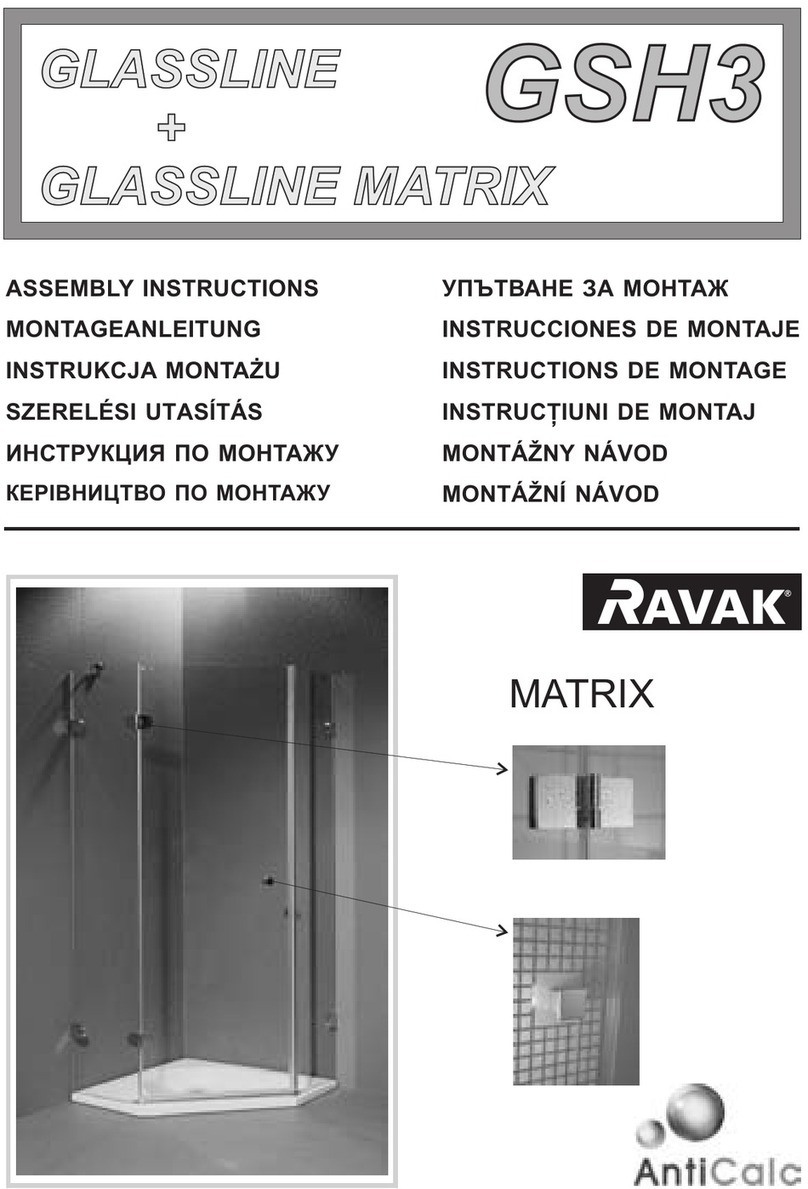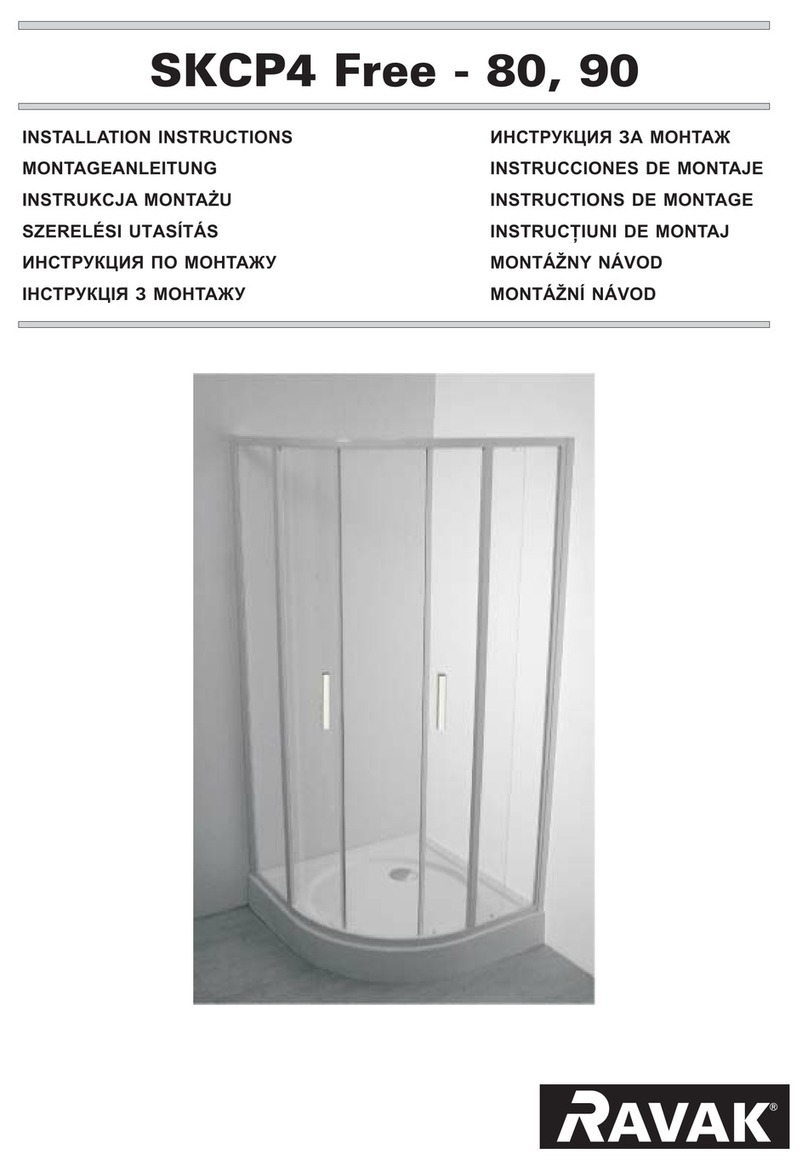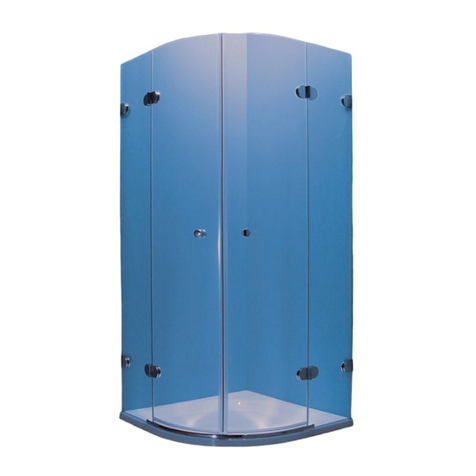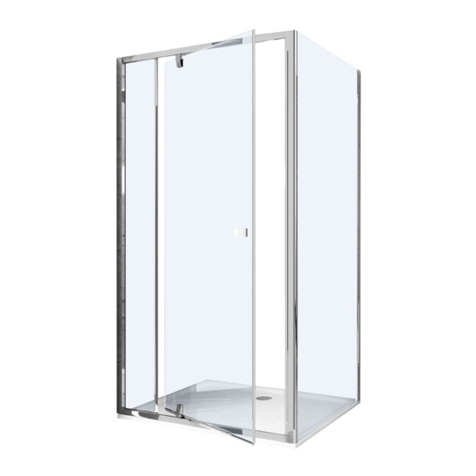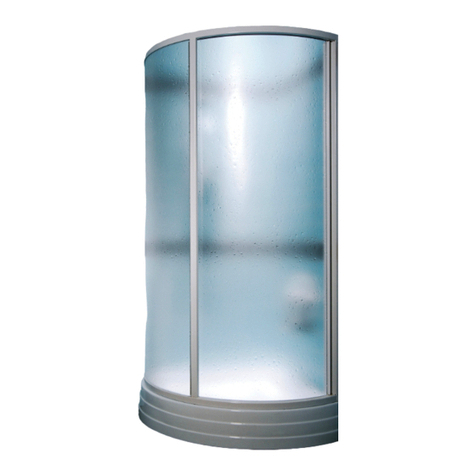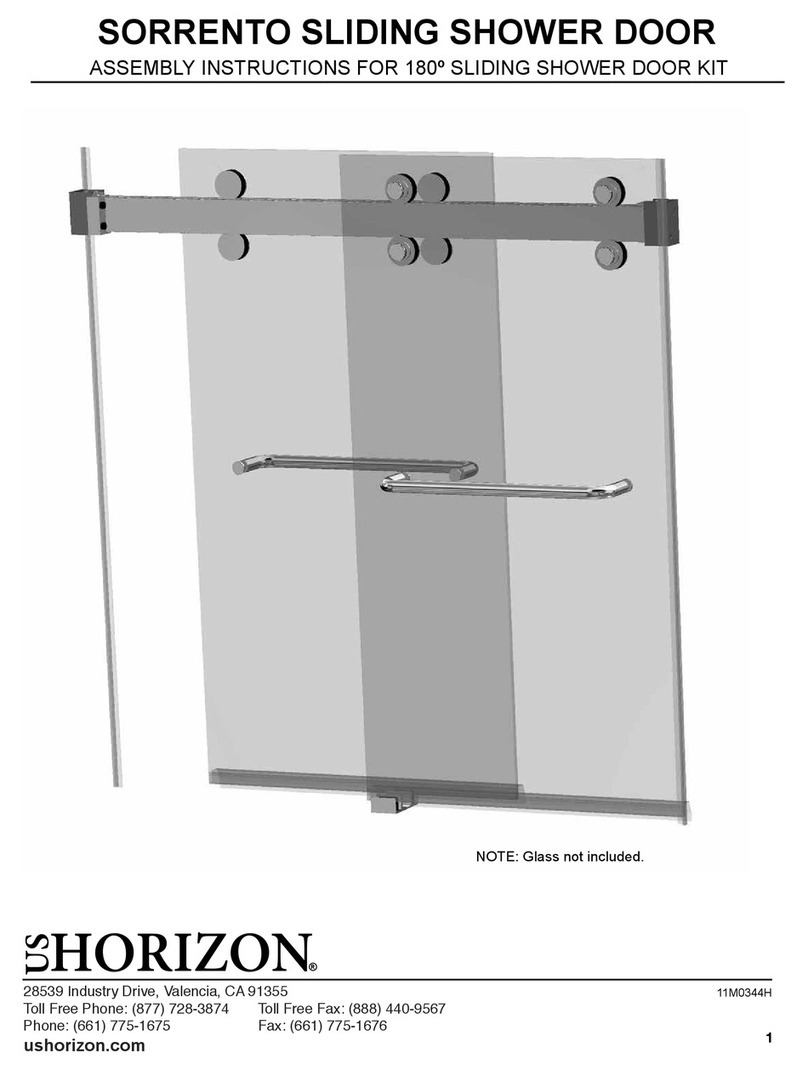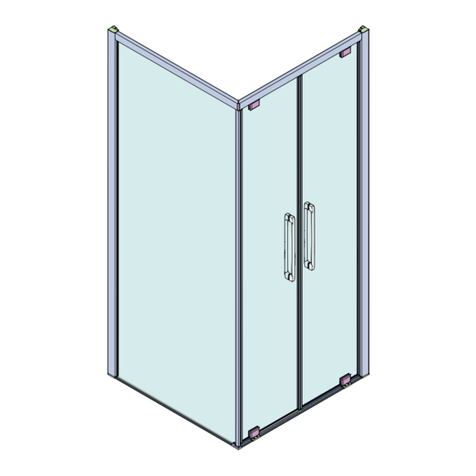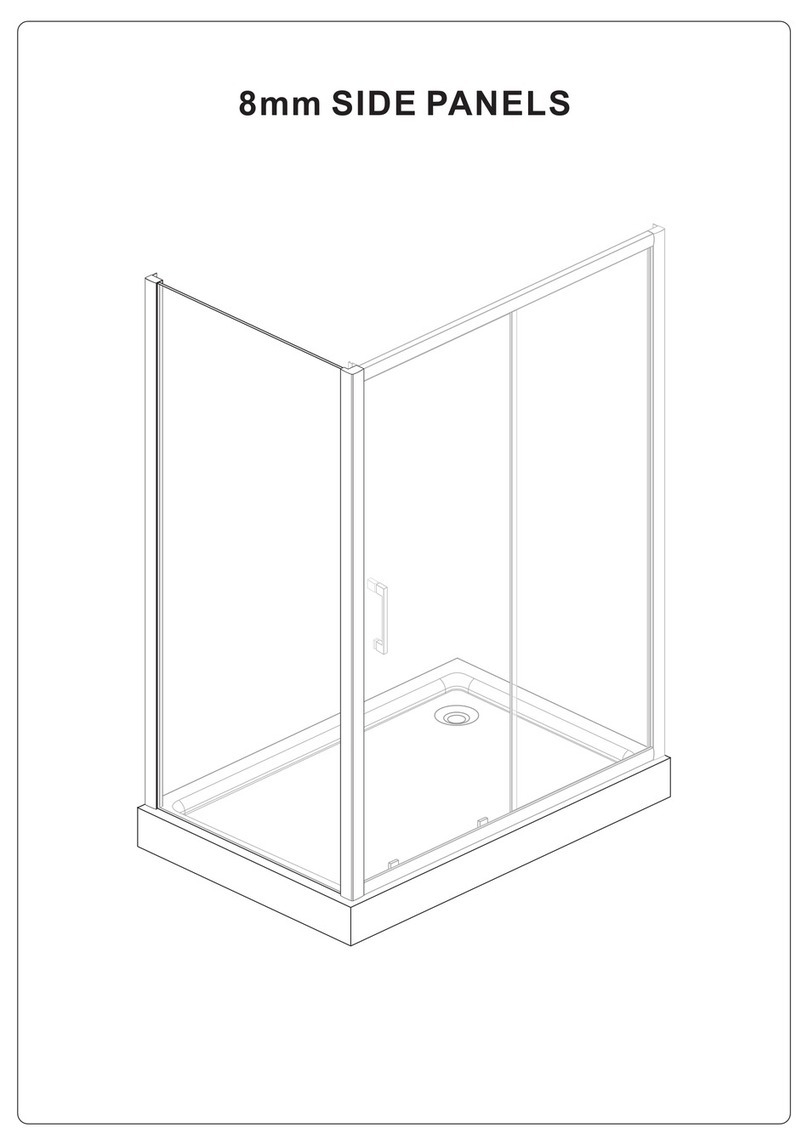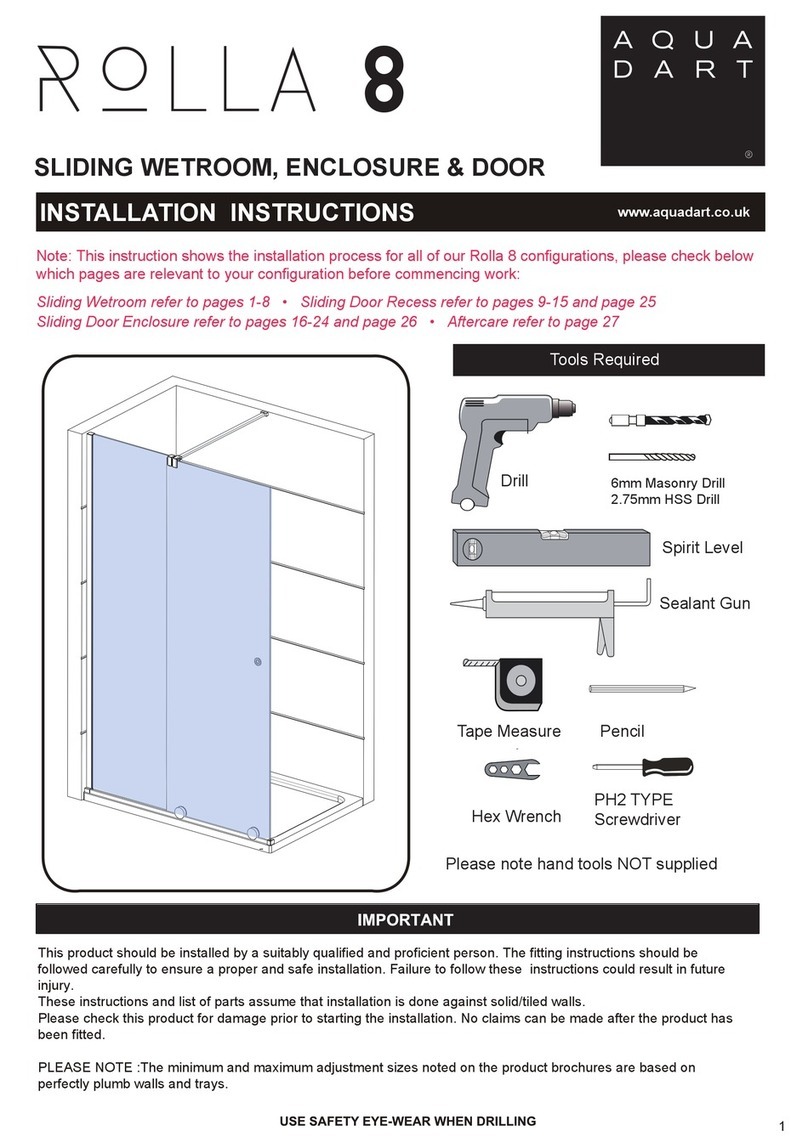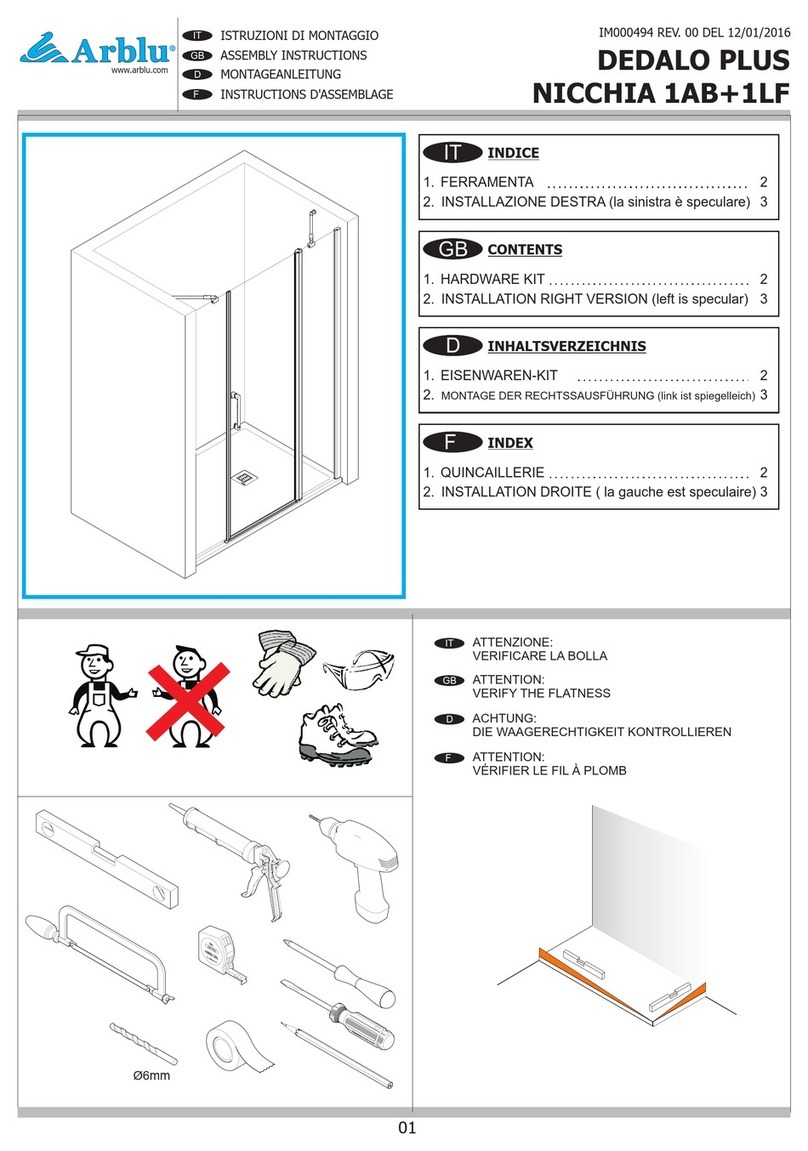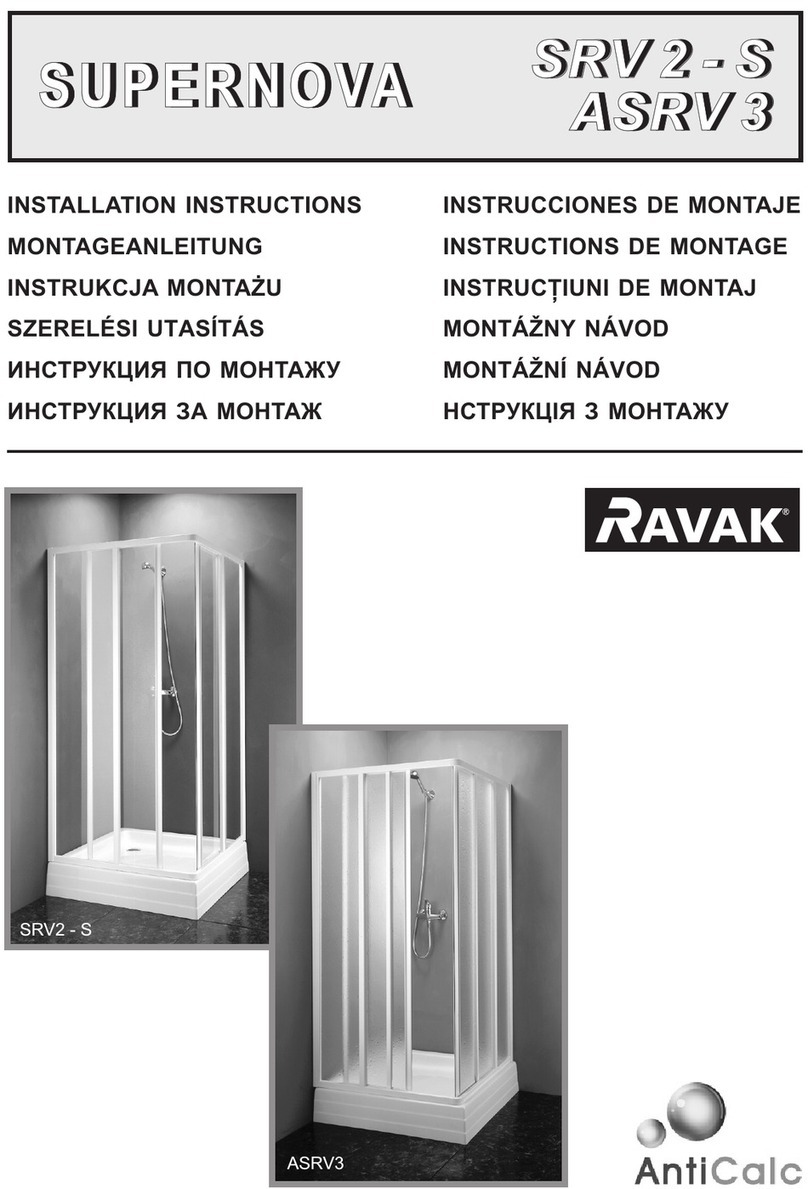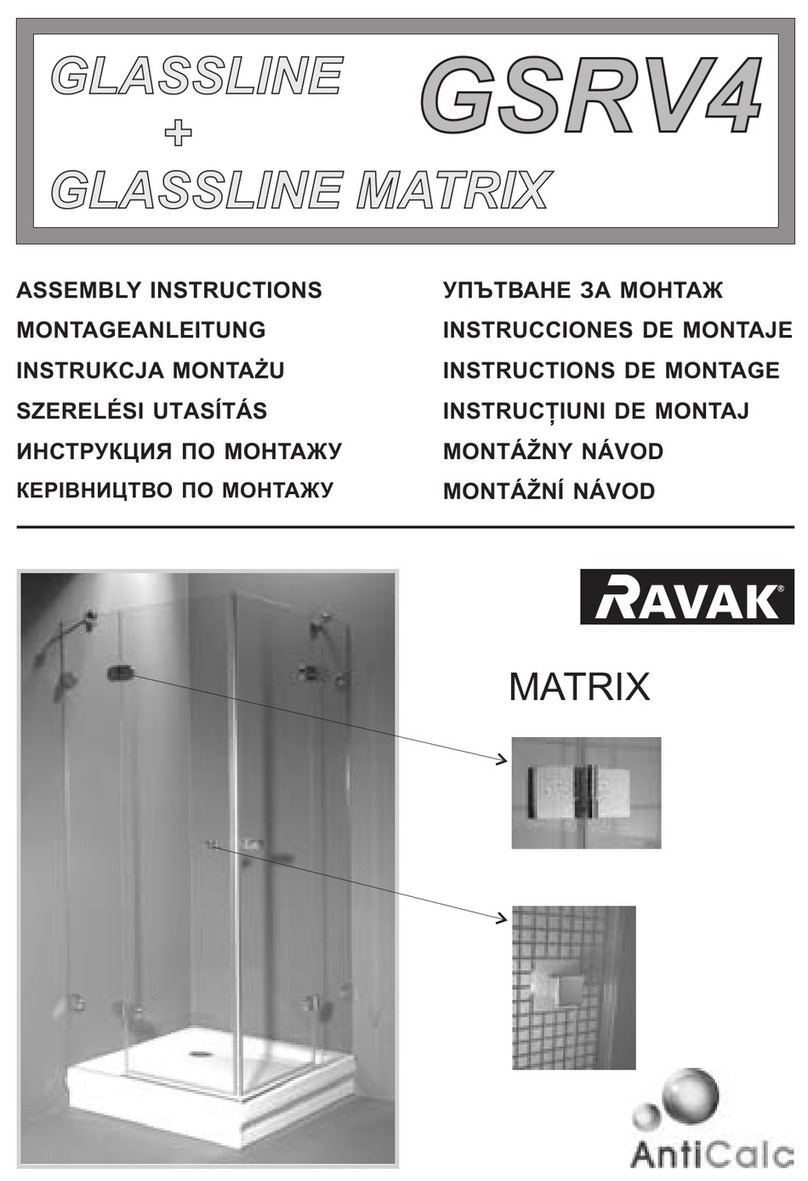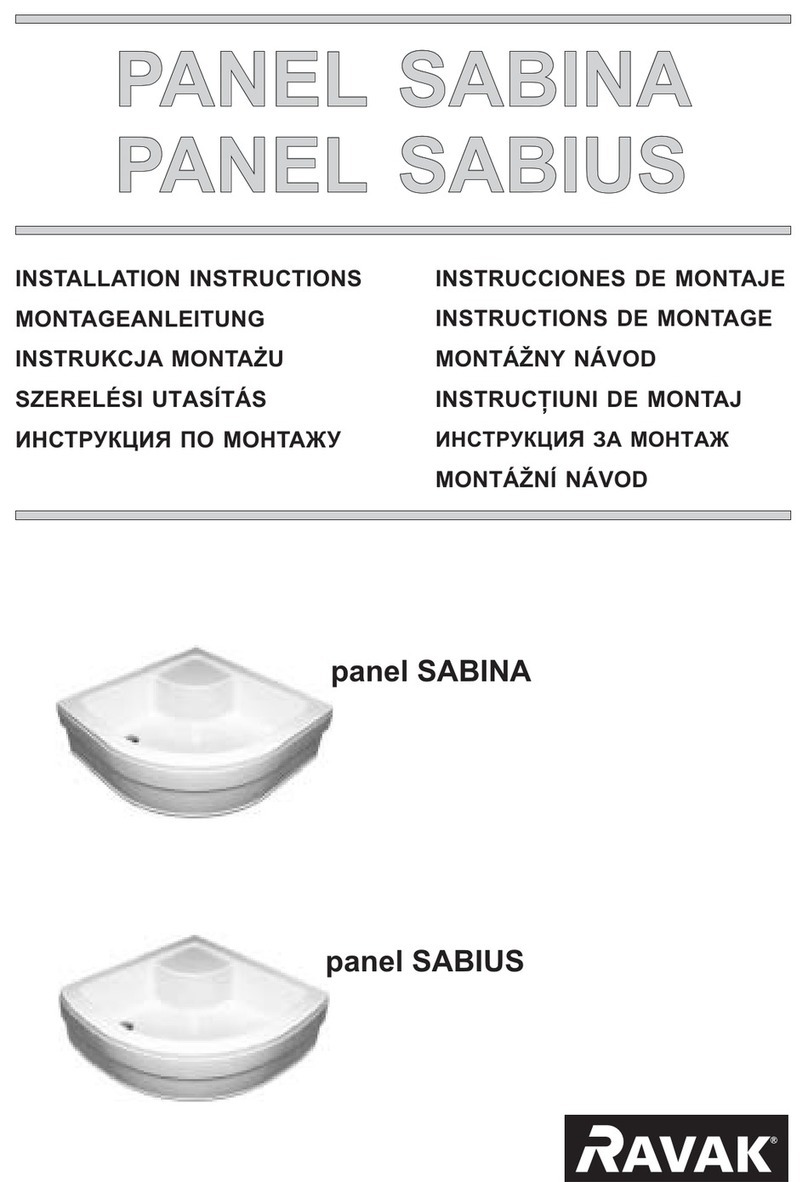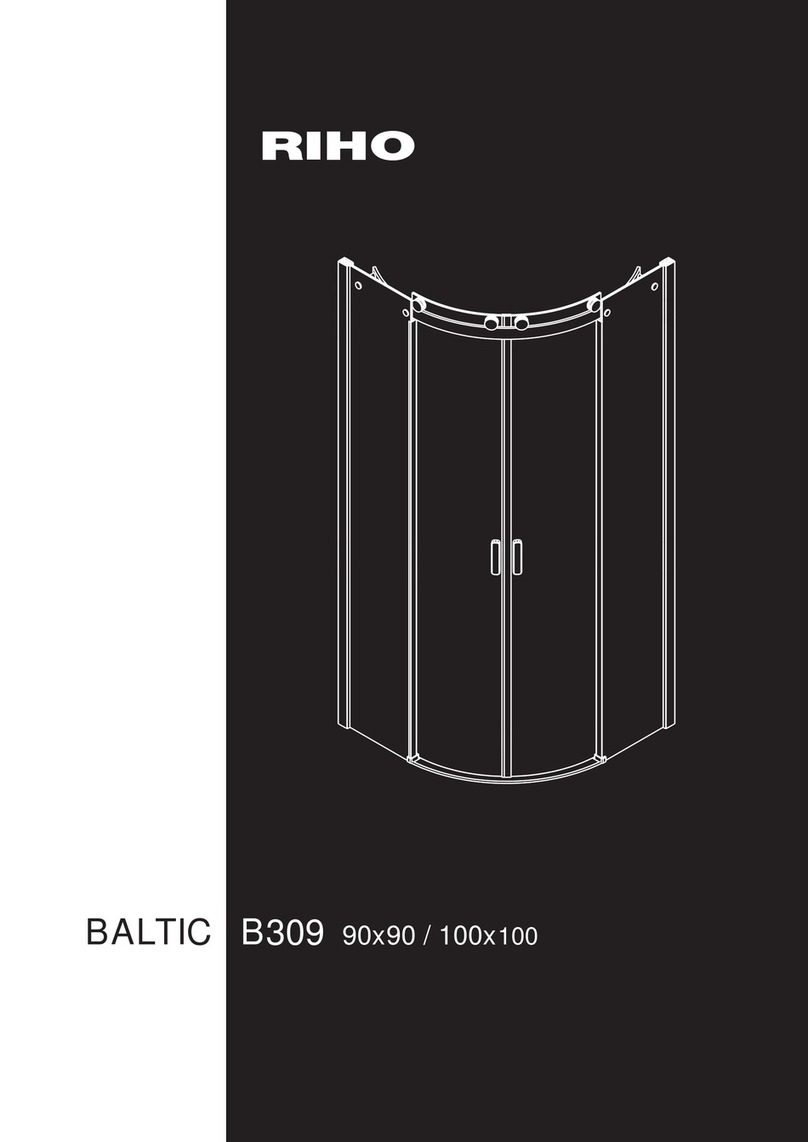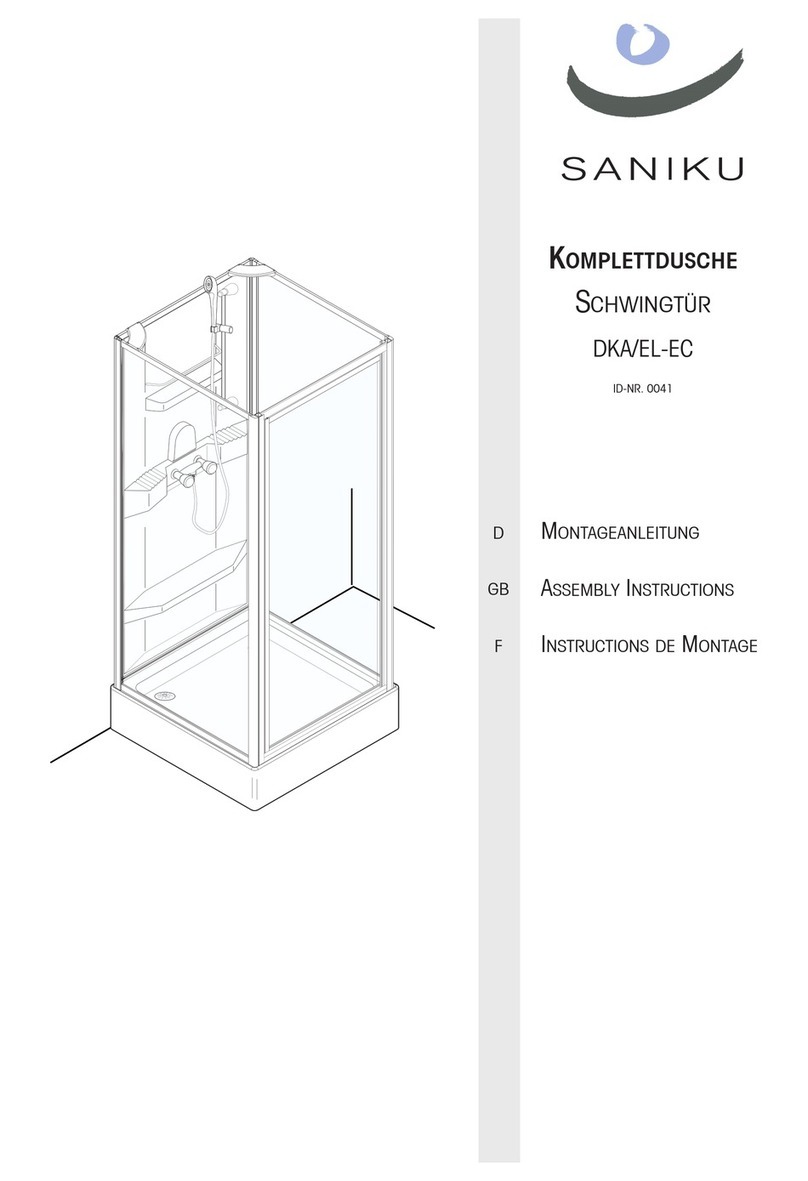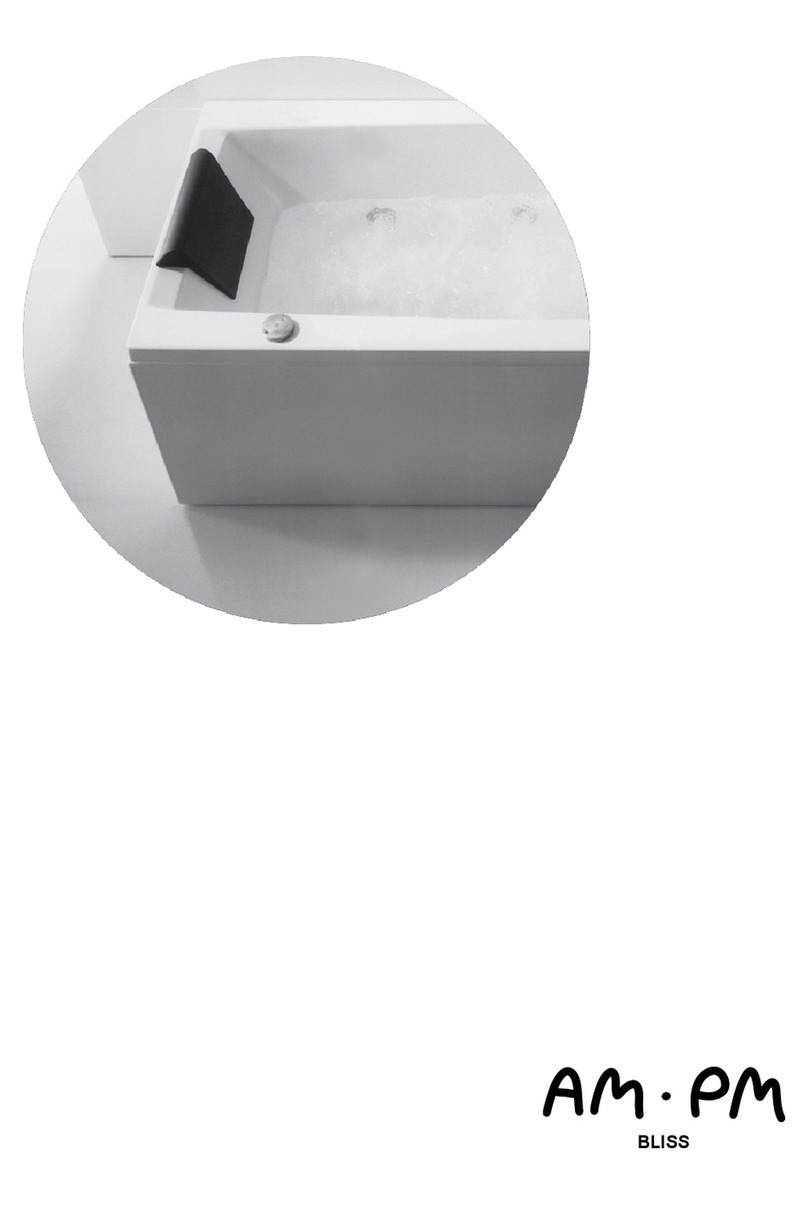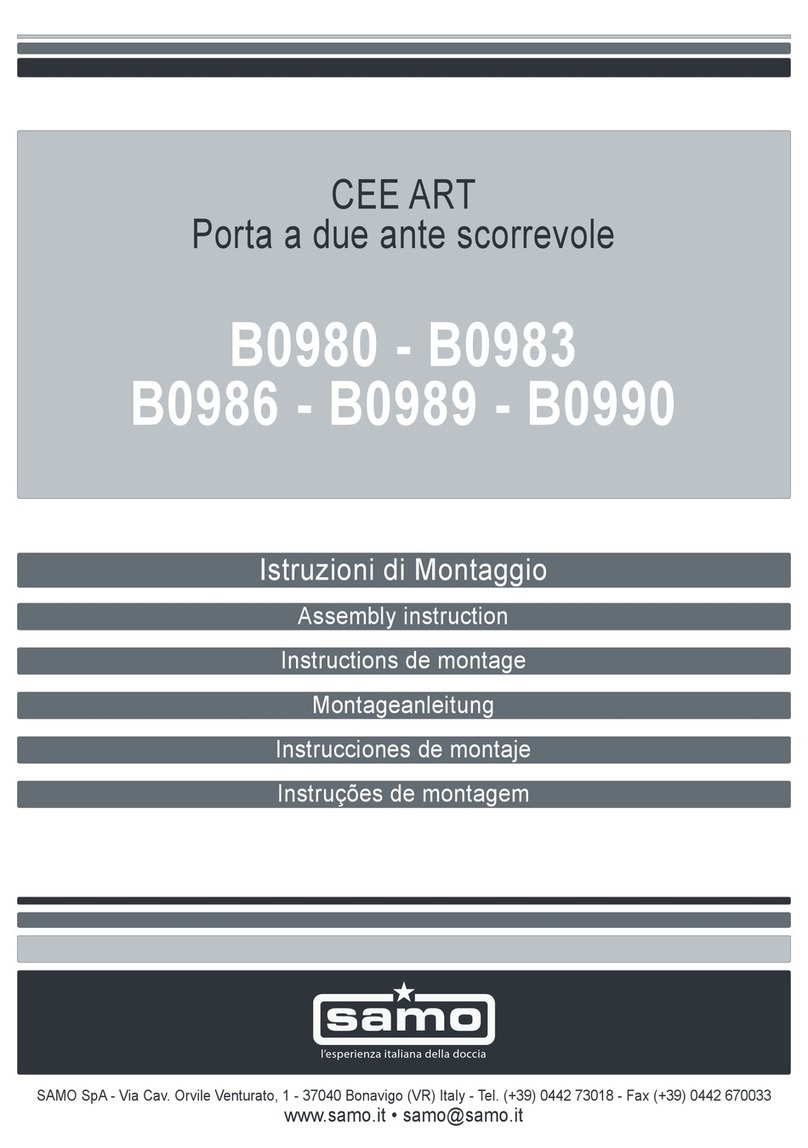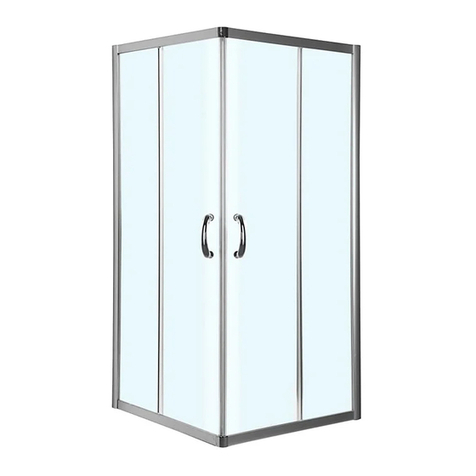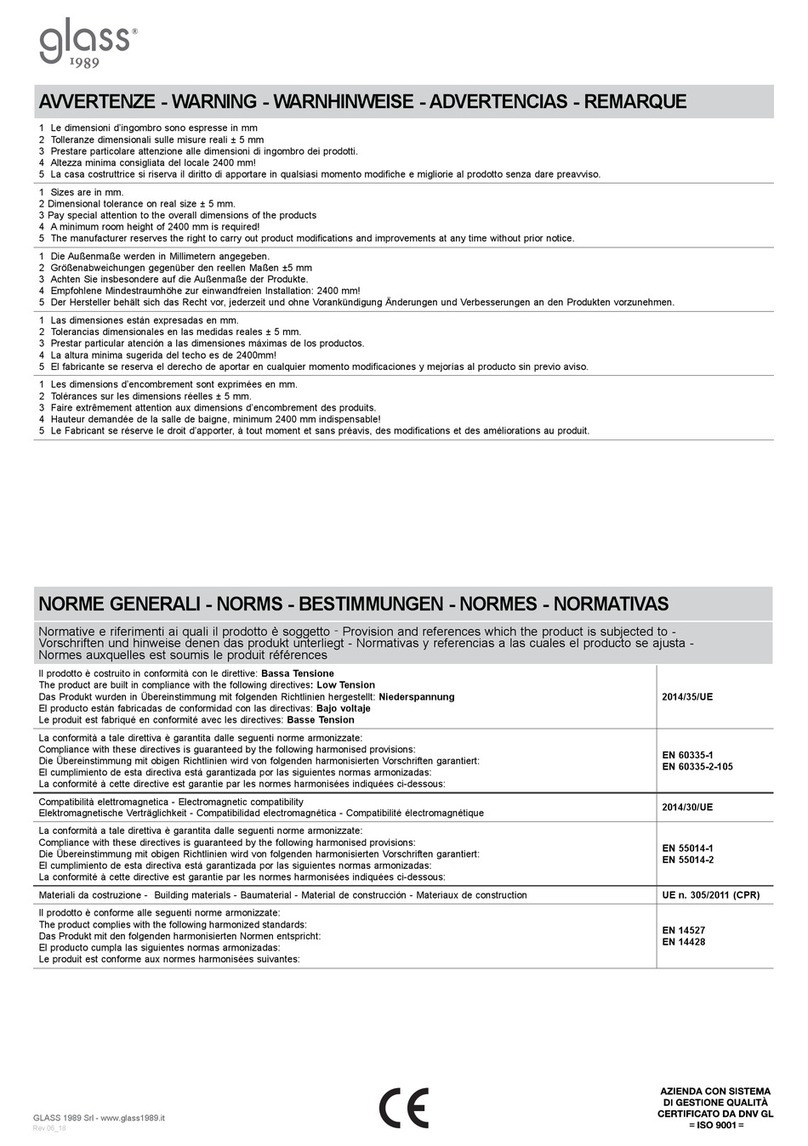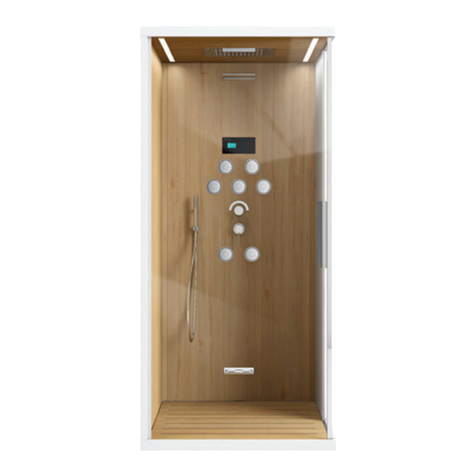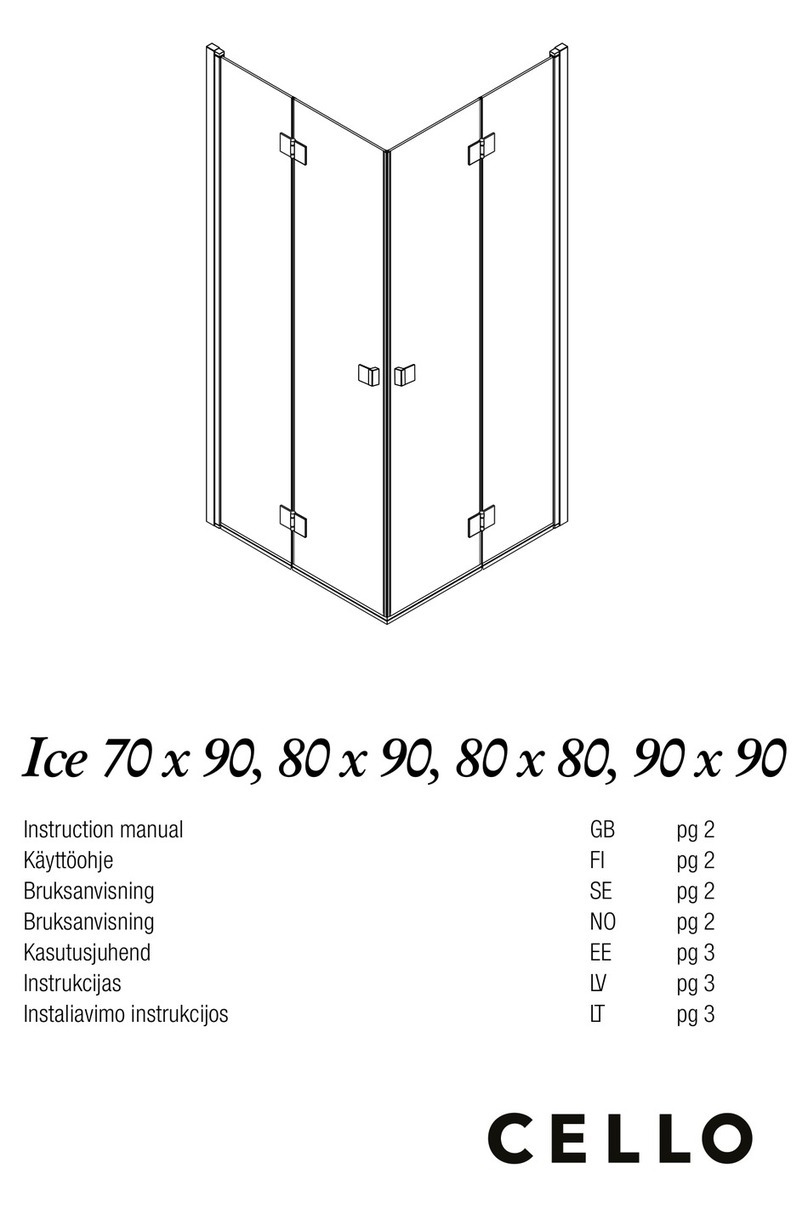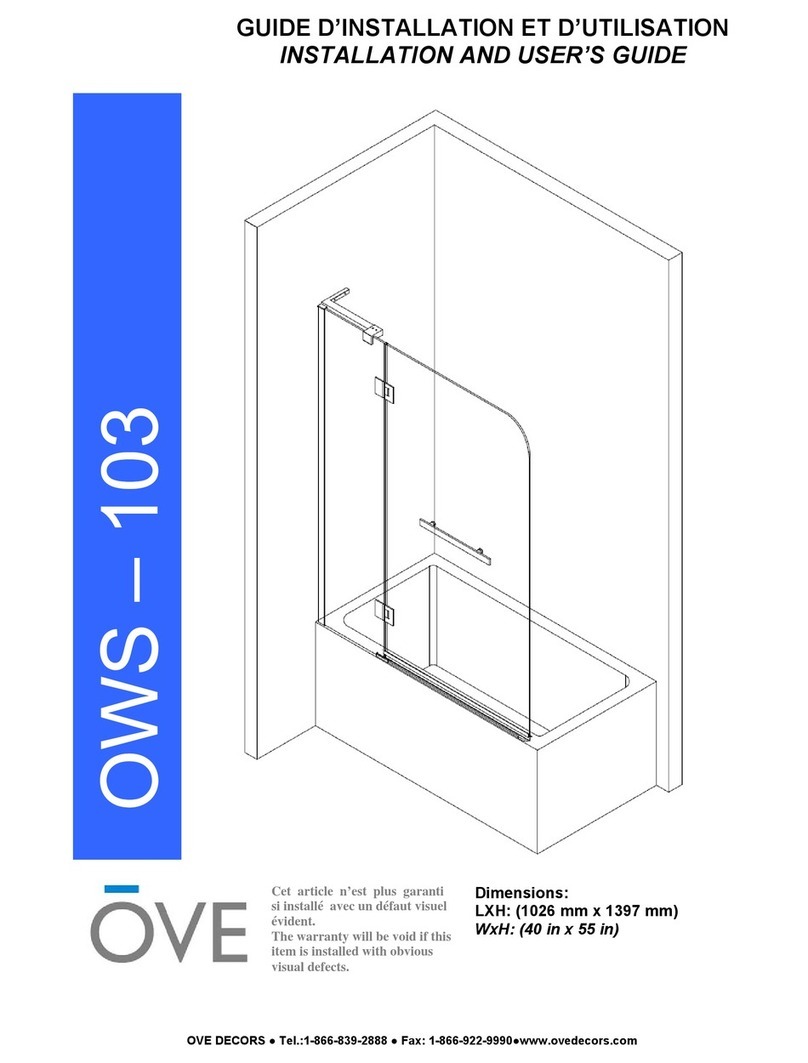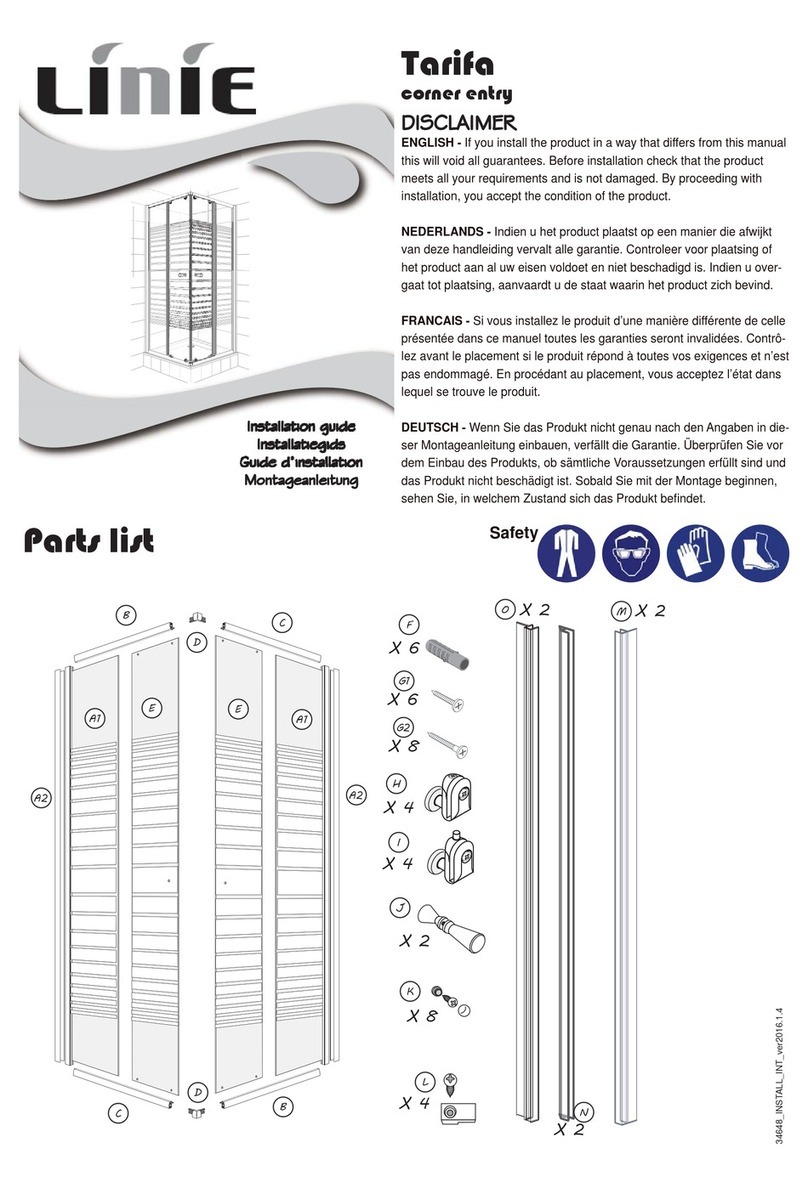
GB
DONOTOVERLOOK!
Maintenance and cleaning should only be carried out on painted and glass parts with soft non-abrasive cloths and cleaning liquids. Do not use any abrasive pastes,
wirewoolorchemicalcleanerse.g.,thinners,acetoneetc.Themanufacturerisnotliablefordamagecausedbywrongorcarelessuseofcleaningmaterials.
The manufacturer recommends the use of the following Ravak products: RAVAKANTICALC CONDITIONER - To be used for perfect maintenance of the protective
Anticalc glass layer. This layer is factory applied to all safety glass panels. Easy application-perfect results. RAVAK DISINFECTANT - A solution with significant
disinfecting effects-intended for versatile use in every household, also recommended for maintenance of bathtub hydromassage systems. RAVAK CLEANER - This
highefficiencydetergenthasapleasantfragrance.TheproductcomplementstheseriesofspecializedchemicalsbyRAVAK.
Provided that installation is carried out in a professional manner and in accordance with above schedule, the product is subject to 24 months warranty. In alternative
cases,localcountryorEUlawswillprevail.Themanufacturerisnotliablefordamagecausedbyincorrectinstallation,useormaintenance.
Forfurtherinformation,contactyourlocalRavakdealer.
Themanufacturerreservestherighttoamendorimproveonexistingdesignsorfeatures.
Please help preserve the environment by observing local country guidelines or laws regarding re-cycling. Materials which are not suitable for re-cycling must be
disposedofatanofficialandsuitablewastecontrolcentre.
ASSEMBLY INSTRUCTIONS
THREE-PART ANGLED SHOWER CORNER GSH3
The product is for mounting in a totally finished (tiled, plumbed, etc.) bathroom and fitted shower tray (if used). The constructional dimensions and/or shower tray
dimensions must be in strict accordance with the dimensions of the selected shower door or enclosure i.e. nominal 80, 90, 100, 110, or 120 cm. according to type.
For best results, the product must only be fitted to a strong and rigid, solid bathroom wall that is vertical and adjacent walls should be square to each other.
WARNING:whenmanipulatingtheglasspanels,alwaysensurethatsome soft material is placed under the bottom edge, forprotection.
Un-pack and prepare individual glass components according to the scheme for left (and right) var
econd fixed glass wall has holes for attaching
to wall. On the vertical edge of this fixed glass wall, fit the plastic profile with magnetic strip facing inwards. (Picture 3). For easier manipulation, dampen the seal
witha little soapy water.
Fit the long plastic sealing profiles to the vertical edge of the fixed glass walls on the sides where they will contact the wall. For easier manipulation, dampen the
sealswith a little soapy water.(Item1)
Ontothe opposite edge of the fixed glass wall, fit thelong soft edged door seal. (Item 2)
Fit to the fixed glass wall, the dismantled halves of the hinges, the lower part of the hinges, with the side for the screw on the inner side of the glass. Repeat with
theupper hinge parts onto the folding door.Ensurethatprotectionpiecesarein place. Never fit hinges directly metal to glass without the protection pieces.
On to the wall edge of the fixed glass walls, mount the wall brackets, angled side on the inner side, flat side on the outer side and lightly tighten. The final
tighteningforce after all adjustments are made should be4-5Nmtorque.
According to the diagram 6-7-8,measure and mark points for drilling from the top of the shower tray (or tiling) up for the centre of the bracket holes. The front
face of the fixed glass wall should sit 19 mm from the outer edge of the shower tray and the centres of the mounting brackets should be 745/845/945 mm from the
face of the back wall depending on the nominal size of the shower tray, 800/900/1000 mm. Insert the temporary white moulded plastic parts under the glass wall
so that it will have a 2 - 3mm space underneath for later filling. Ensure correct measurements are maintained and that measurement points are vertical by a spirit
level.
Drill 2 holes 8 mm dia. to depth of 60 mm. Fit the special 'Mungo' plastic wall plugs. Onto the adjacent wall, again mark for two holes as before, in accordance
with the diagram, 745/845/945 mm from the face of the side wall as before. Drill two holes 8 mm dia. to a depth of 60 mm and insert the other two 'Mungo' wall
plugs.Fit the other two wall brackets and again set thesecond fixed glass wall with the white moulded plastic partsunderneath.
Washers and screws are included for fitting components to traditional walls of brick and plaster or cement. If other wall materials are used, other full strength
fittingcomponents must be utilised in accordance with manufacturers advice.
Setfixed glass walls vertical, fit and tighten the two setsof 5 x 60 mm screws. For setting level tothe base, adjust the white moulded plastic parts, as necessary.
Fit the magnetic seal profile to the door with the angle face pointing inward. Fit the door onto the hinges. Fit the door handle with the correct plastic sleeve in
thehole of the door and plastic washers between the handlesand the glass. Never fit metal directly to glass.
Adjustthe door so that it is level. Check the contactof the magnet seals against each other ensuring they meettogether correctly for the whole vertical length.
The gap between the door glass and the fixed glass wall (the one with the hinges) must be even and approximately 4 mm when the door is in the closed
position.Thesoftsealwillfill this space.
If necessary, loosen the screws in the brackets of the fixed glass wall. The door can then be moved by ± 6 mm. Never adjust the plastic with magnetic strip
profile,which is attached to the door.
When the product is correctly adjusted, it should have the top edges of the glass panels level with each other and horizontal. The edges of the door and fixed
wall panels must be level with the shower tray edge and the magnetic strips must make proper contact over the whole length of the strip. In the case of uneven
walls or tiling, it is possible to make compensation by using the flexible mounting washer part underneath the relevant wall brackets. (Diagram 14). The brackets
must be in one vertical line and the gap between the upper and lower part of the hinge must be the same for both hinges. The final gap under the fixed wall should
stillbe2-3mmandundertheglassdoorshouldbe32- 33 mm.
DOUBLECHECK tightness of all connections. Tighteningtorqueofglass against brackets or hinges should be 4-5 Nm.
Ensurethe sealing profiles between the fixed glass walls and tiledwalls are pushed hard in.
Onto the lower edge of the door,usesiliconputtytofitthe small draining seal.
Usesilicon putty to fit the threshold strip parallel with thedoor.Thecorrectpositionis9 mm from the outer edge of the glass. (Seepicture 17).
Using the Ravak transparent silicon putty, fill all seals from the external side of the vertical connections between the fixed glass wall and the tiling. Discard the
temporary plastic pieces and fill the horizontal gap underneath the fixed glass wall. Fill along the edges of the threshold strip. Fill along the edges of the small
draining seal. Place a knob of silicon on top of the bracket screws and press into place the stainless steel bracket covers with the flat face outermost. When set,
removethe protective foil.
Where this component is part of the product contents, attach the strut to the upper edge of the fixed glass wall(s). Find the position where the opposite end
touches the wall and make a mark for the centre of the wall bracket. Drill a hole 8 diameter x 60 deep. Fit a wall plug and screw bracket to wall witha5x60screw.
Fastenthe opposite end to the glass with bolt M8 x8 mm
1.
2.
3.
4.
5.
6.
7.
Warning:Becarefultoavoidelectric,waterandgaspipes hidden beneath plasterwork or tiling.
8.
9.
10.
11.
12.
13.
14.
15.
16.
17.
18.
19.Alternativemountingstrut:
ASSEMBLYSEQUENCE: iants. The glass for the fixed wall with a thickness of 8 mm at
the wall has two fixing holes and on the other side there are 4 holes for door hinges. The door glass has 2 holes for hinges and on the other side there is 1 hole for
the handle halfway up the height of the door. Marks on the glass must be readable when viewed from the outside. S
